On 25 April 2023, NANOTEC-NSTDA along with 10 partner organizations announced the launch of Nanosafety Consortium Phase 2, aiming to continue the implementation of nanosafety and nanoethics strategic plan.
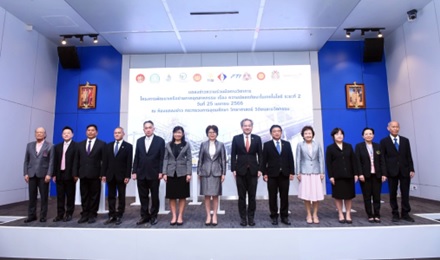
Nanosafety Consortium originated from the collaboration between NANOTEC and the Thai Industrial Standards Institute (TISI) in establishing industrial standards for nanotechnology products as well as forming a consortium to promote awareness of nanosafety and nanotechnology standards in the industrial sector.
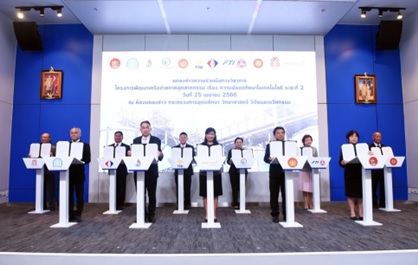
Nine organizations representing government agencies and associations participated in the first phase of the consortium which lasted from 2020-2022. The membership has expanded to 11 organizations in the second phase (2022-2025). The current consortium members are NANOTEC, the Department of Industrial Works, the Food and Drug Administration, TISI, the Office of the Consumer Protection Board, the National Institute of Metrology, the Federation of Thai Industries, the Council of Scientific and Technological Associations of Thailand, Nanotechnology Association of Thailand, the Department of Labour Protection and Welfare, and the Pollution Control Department.
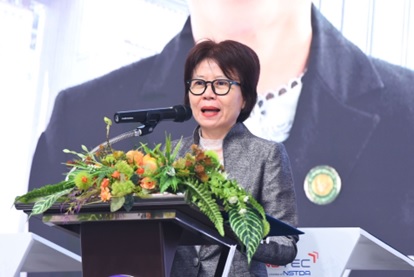
Dr. Junpen Meka-apiruk, Inspector General of the Ministry of Higher Education, Science, Research and Innovation (MHESI), said that the vision of MHESI is to harness the power of higher education, science, research and innovation to enhance the country’s competitiveness with a value-creation economy and usher Thailand into the future. The Bio-Circular-Green Economy (BCG) model represents an economic model for sustainable economic growth and inclusive society. It aims to employ science, technology and innovation to improve the competitiveness of four key industries and to achieve the UN Sustainable Development Goals (SDGs).
“While economic growth is being heavily driven, impacts of economic activities on workers, consumers and the environment should not be overlooked. To develop sustainable innovations, well-equipped infrastructures, ample supports and coordination among stakeholders must be put in place. This consortium to promote industrial standards and nanosafety will significantly contribute to the sustainable development of nanotechnology in accordance with the nanosafety and nanoethics strategic plan,” said Dr. Junpen Meka-apiruk.
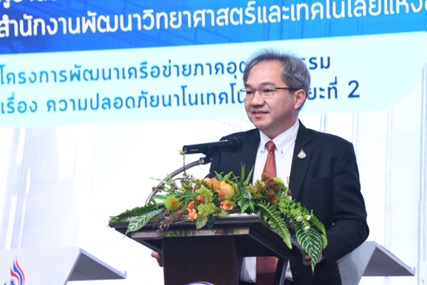
NSTDA President Prof. Dr. Sukit Limpijumnong said that NSTDA has developed the national science, technology and innovation infrastructure (NSTI) and the national quality infrastructure (NQI) to enrich Thailand’s innovation ecosystem, help advance research to market, and support the industrial sector.
“Our NQI, including PTEC, CTEC, DECC, TBES, as well as technology platforms offered by the national centers have assisted Thai enterprises to create values and new products with quality and safety meeting industrial standards. The collaboration announced today will ensure the top quality of Thai nanotechnology products in the global market.”
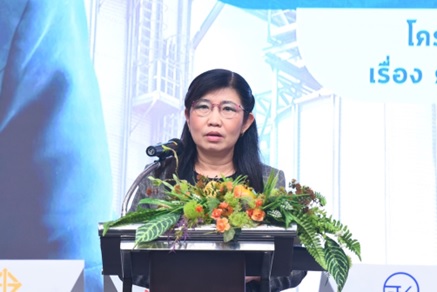
NANOTEC Executive Director Dr. Wannee Chinsirikul said that NANOTEC recognizes the importance of nanosafety and thus has developed a master plan consisting of strategies to develop sustainable nanotechnology. As nanotechnology is being employed more and more across various industrial sectors throughout multiple value chains, nanosafety becomes a top priority that requires cooperation from all concerned parties, including the public, private and people sectors, to drive sustainable nanotechnology.
“The implementation of nanosafety and nanoethics in the first phase was a success. All nine members in the consortium worked cooperatively to achieve the set targets, raising awareness and understanding in nanosafety and industrial standards among enterprises and the public. Moving forward into the second phase, the consortium will be strengthened with two new members, namely, the Department of Labour Protection and Welfare and the Pollution Control Department,” said Dr. Wannee Chinsirikul.
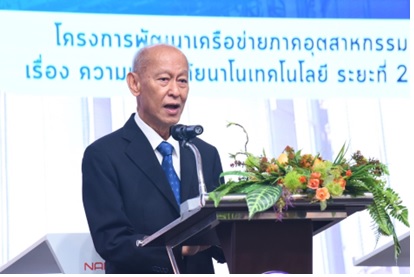
Major General Assoc. Prof. Dr. Chainarong Cherdchu, who also serves as the chairman of nanosafety consortium working group, remarked that during the first phase taking place in the past two years, the consortium focused on raising awareness and providing knowledge on nine industrial nanotechnology standards to industries exploiting nanotechnology in their manufacturing processes. The achievement was remarkable despite the limitation caused by the pandemic. The consortium will continue the work on standards establishment and knowledge dissemination, aiming to develop at least two new standards a year.
“More importantly, we expect at least two organizations to serve as a model to fully implement nanotechnology standards to boost confidence of Thai nanotechnology products in local and international markets,” concluded Dr. Chainarong Cherdchu.
